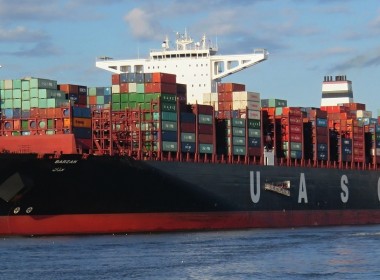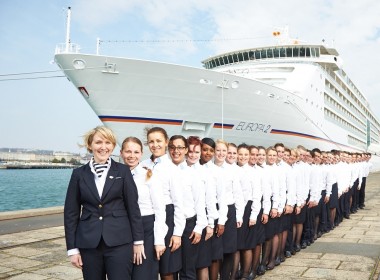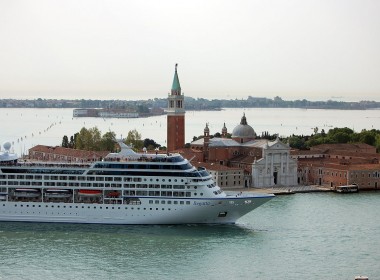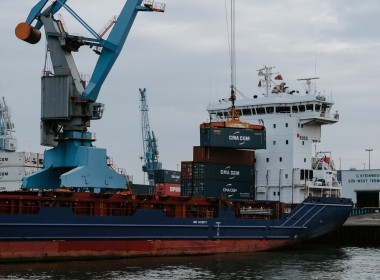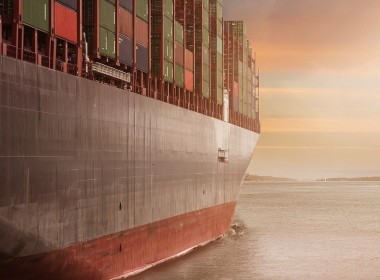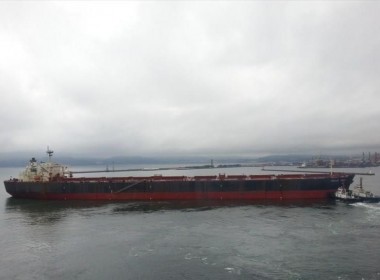COLUMN: Remote control [Grey Power]

Many years ago there was a story doing the rounds about a clever device that would enable the master of a ship to steer his vessel, using a small box slung around his neck, which was connected to the steering telemotor by a wandering lead.
This would enable the helmsman to be made redundant in confined waters and was supposed to be just the job for parsimonious short sea owners, who could save the cost of a crew member.
The prototype model never made it into production because of a grisly incident when the cook, bringing a cup of tea to the master, who was steering remotely from the wing of the bridge, forgetfully slammed the wheelhouse door, severing the cable and jamming the door shut. The master had applied some helm and with this wretched fellow vainly beating his fists against the thick teak door, the ship described a graceful arc across the river and buried her bow into a coal jetty. The owners decided that they could, after all, afford a human helmsman.
Local knowledge
I thought of this sad tale, reading about our current preoccupation with “remote control”, albeit that facilitated by amazing electronics, rather than a length of cable. In the UK, for instance, there are some clever port operators that have suggested running their vessel traffic services in their several ports from a single control station, despite some of the ports being in different seas, and up to 200 miles apart.
It is technically possible to operate VTS in such a fashion, although the watch officers, and the pilots in the threatened ports are outraged at the idea, citing the importance of local knowledge. It is, they say, all about saving money, and safety will suffer.
You can see their point of view, which, one hopes, will prevail, because a port where the pilots and VTS operators work in harmony is arguably a lot safer than one where they never see each other and operate in their respective silos.
It is a sort of derivation from another seriously flawed money-saving wheeze – that of “remote pilotage”, where a pilot, instead of boarding a ship, would offer his or her advice to the master on the VHF from a port control station. It was even suggested that it might be possible for a dextrous pilot to be able to advise more than one ship simultaneously, thus saving even more lovely money.
Pilots quite reasonably pointed out the value of actually knowing and being part of a bridge team and being able to “adjust” for the fact that the crew was incompetent, the master petrified at a new and unfamiliar port, along with all the additional advice that is given other than helm and engine orders.
How on earth is a “remote” pilot, snug in his control room, to know that the tide has kicked in a few minutes earlier than expected, that the after gang have made a pig’s ear of making the tug fast or the helmsman cannot steer for toffee?
I treasure a true story from a German pilot who found himself alone on the bridge with the ship approaching the berth, because the master had rushed onto the foredeck to punch the lights out of the chief officer, who had offended him. How would the remote pilot deal with such a situation?
It is all connected with the current enthusiasm for “connectivity”, which is increasingly making it possible for those ashore to interfere in the operation of a ship in a way that previously distance made impossible. It might be thought of as “micromanaging” and many people think that it is a step that is too far and will have all manner of unexpected and mostly bad consequences.
There are already several companies that are running shore-side operations centres, where the position and state of the ships in the fleet are being monitored in real time. A ship strays a mile from a red line on a screen in the centre and within minutes, there will be an angry interrogation winging its way to the ship as to the reason for the diversion. More and more of the decisions taken by the ships’ officers will be “second-guessed” and probably contradicted by some supervisor ashore.
A breakdown of trust between ship and shore
Worst of all, even charterers are now becoming involved in what amounts to the remote control of the ship they have chartered, giving the master the benefit of their advice, whether it is needed or not, with hell to pay if it is ignored.
It is worth asking whether the morale of those aboard ship will be improved by their authority being questioned or their decisions over-ruled by those ashore. Worrying chapter and verse has been provided by research undertaken by the Seafarers International Research Centre, which has pointed to a breakdown of trust between ship and shore, in a number of different areas. Writing in the Nautical Institute Seaways journal, SIRC’s Professor Helen Sampson reported that the research indicated real tensions in ship-shore communications, ranging from bad attitudes to demands being made that those aboard ship felt were unsafe.
It probably isn’t helped by the ability to instantly communicate with a ship in a way that has never previously been possible. I wonder whether modern masters envy their predecessors in the days before cheap and easy communications, when they were largely left on their own to get on with their jobs unhindered by impertinent emails and rude telephone calls from remote controllers.


